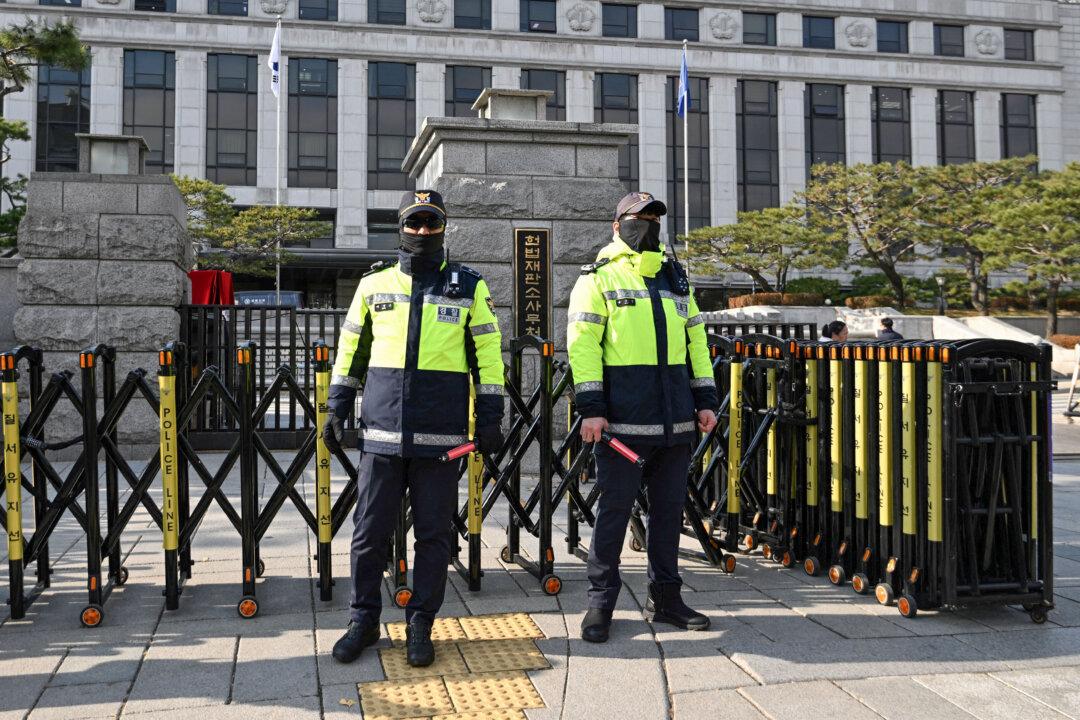The United States and Japan will bolster defense collaboration under two new agreements in the wake of China’s “provocative actions” in the disputed South China Sea and the Taiwan Strait, U.S. Secretary of State Antony Blinken said on Thursday.
Speaking at the opening of a virtual meeting between the two countries’ foreign and defense ministers, Blinken said the allies will sign a new five-year agreement on U.S. military presence in Japan, which will help to “deepen our military readiness and interoperability.”
Under the terms of the hosting deal, which will run to 2026, Japan will spend approximately $1.82 billion annually to fund its share in the upkeep of about 55,000 American troops in Japan.
The two allies will also sign a new research and development agreement to collaborate on emerging defense-related issues, including ways to counter hypersonic threats and advance space-based capabilities, Blinken said.
Blinken emphasized that the Japan-U.S. alliance “must not only strengthen the tools we have, but also develop new ones,” citing China’s growing assertiveness at the disputed sea and Russia’s military build up on Ukraine’s borders.
“China and Russia continue to violate international norms—on land, at sea, in space, in cyberspace. Beijing’s provocative actions keep raising tensions across the Taiwan Strait, and in the East and South China Seas,” he noted.

Japan’s Foreign Minister Yoshimasa Hayashi told the virtual meeting that the international community faces multifaceted challenges, including the “unilateral and coercive attempt to change the status quo, abusive use of unfair pressure, and expanding authoritarian regime [sic].”
Australian Prime Minister Scott Morrison said that the Japan-Australia treaty would also contribute to an “expanding agenda” for the Quad, an informal strategic security dialogue between the United States, Australia, India, and Japan that promotes a free Indo-Pacific region.
Wei responded by saying that China would “firmly safeguard its territorial sovereignty and maritime rights and interests” in the Senkaku Islands, which China calls the Diaoyu Islands, while emphasizing the need for both countries to make joint efforts to maintain peace and stability in the East China Sea.





